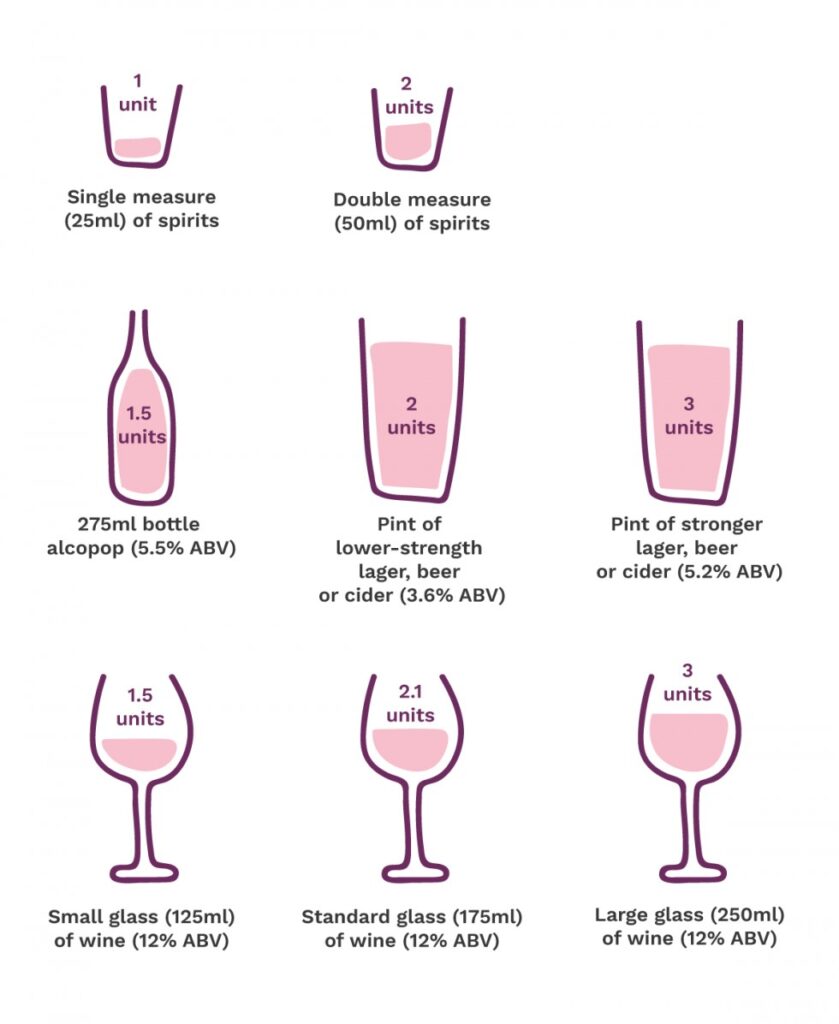Women are often unaware of alcohol’s role in increasing breast cancer risk. A study published in the online journal BMJ Open found that only one in five women attending a breast cancer clinic knew it was a risk factor. More than 100 observation studies have researched the association between alcohol consumption and breast cancer risk in women. These studies have consistently found an increased risk associated with alcohol intake. Women who have three alcoholic drinks per week have a 15% greater risk of developing breast cancer than women who do not drink at all. It is also estimated that the risk of breast cancer increases another 10% for each additional drink women regularly consume each day. Alcohol has also shown to increase risk for other forms of cancer, including head and neck, esophageal, and liver cancer.
Alcohol is empty calories, which can contribute to weight gain and excess fat has been linked to cancer risk. The connection between breast cancer and alcohol consumption is also thought to be linked to alcohol’s negative effects on hormone levels. Three ways alcohol contribute to breast cancer are:
- Alcohol increases estrogen levels. Research shows consuming alcoholic beverages increases a woman’s risk of hormone-receptor-positive breast cancer. Alcohol has an effect on estrogen receptors, thereby increasing exposure to endogenous estrogen levels and the frequency of long menstrual cycles. This can promote breast cancer tumor growth.
- Metabolizing alcohol releases carcinogens. As our bodies break down alcohol, acetaldehyde, a cancer-causing molecule, is formed as a byproduct. This molecule is known to induce DNA damage and therefore may promote breast tumor formation.
- Consuming alcohol may decrease absorption of essential nutrients. Alcohol can decrease the absorption of important nutrients, including folate, which is involved in DNA synthesis and repair. Regular drinking also contributes to vitamin B-12 deficiencies. These two factors increase the risk of breast cancer.
The size, alcohol content, and number of drinks can affect risk. Alcohol drinks come in three choices: beer, wine, and liquor. A drink is defined as 12 ounces of beer, 5 ounces of wine, and 1.5 ounces of liquor. Units are a simple way to express how much alcohol is present in a drink. Research from the UK suggests that women drink no more than 14 units per week. The number of units depends on the size of the drink and the strength of the alcohol, which is often expressed as a percentage on the bottle or can.

The more alcohol consumed, the higher the risk. The infographic below illustrates how many women out of 50 will develop breast cancer in their lifetime depending on how many units of alcohol they consume.

To cut back on alcohol consumption and decrease your breast cancer risk, here are some guidelines:
- Select low-calorie alcohol options to avoid excess weight gain.
- Avoid 100-proof liquor
- Avoid alcohol as often as possible
- If you do not want to eliminate drinking alcohol completely, try to limit it to having two or fewer alcoholic drinks per week.
- Try mocktails – drinks that use all the ingredients of cocktails except for the alcohol. Check out this page for some fun and easy mocktail recipes.
Breast cancer is affected by a combination of factors: genetic predispositions, lifestyle choices, and environmental factors. There is never one exclusive cause of disease. However, Cancer Research UK has found that reducing alcohol consumption was one of the best ways women could reduce their breast cancer risk. Increasing awareness about alcohol’s effect on breast cancer risk empowers women to make modifiable changes in their life that can help shift the odds in their favor.
Resources
“Alcohol.” Susan G. Komen®, February 13, 2020. https://ww5.komen.org/BreastCancer/DrinkingAlcohol.html.
Blackburn, K. B., & MD Anderson Cancer Center. (2019, May 8). Alcohol and breast cancer risk: What to know. https://www.mdanderson.org/publications/focused-on-health/alcohol-breast-cancer-risk-what-to-know.h30Z1591413.html.
“Can Alcohol Consumption Increase Your Risk of Breast Cancer?” Abramson Cancer Center (blog). Penn Medicine, October 5, 2018. https://www.pennmedicine.org/cancer/about/focus-on-cancer/2018/october/can-alcohol-consumption-increase-my-risk-of-breast-cancer.
“Drinking Alcohol.” Breastcancer.org, August 30, 2016. https://www.breastcancer.org/risk/factors/alcohol.
“Women Not Aware Enough of Breast Cancer Link to Alcohol.” BBC News. BBC, June 19, 2019. https://www.bbc.com/news/health-48677953.
“Women Not Aware Enough of Breast Cancer Link to Alcohol.” BBC News. BBC, June 19, 2019. https://www.bbc.com/news/health-48677953.